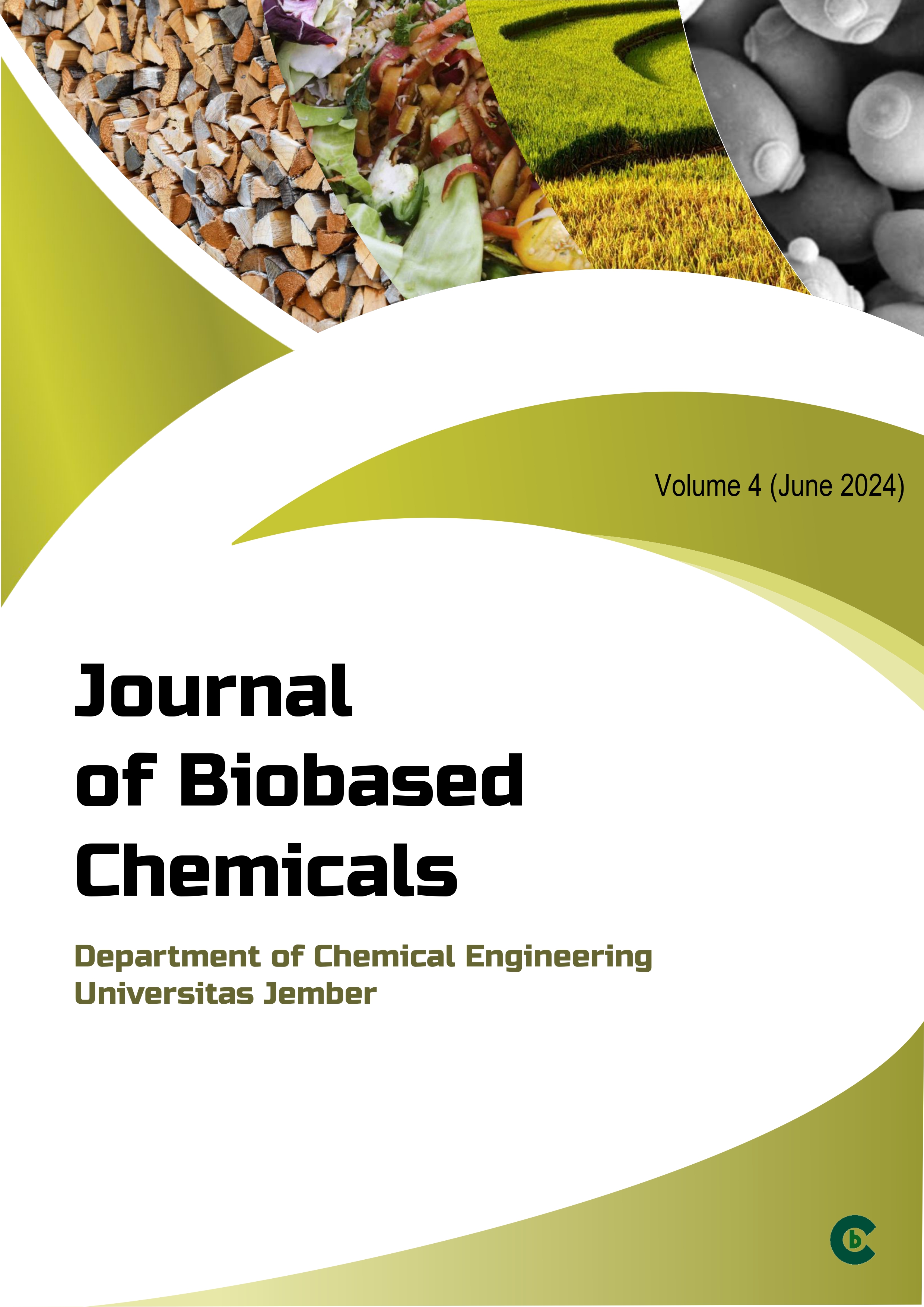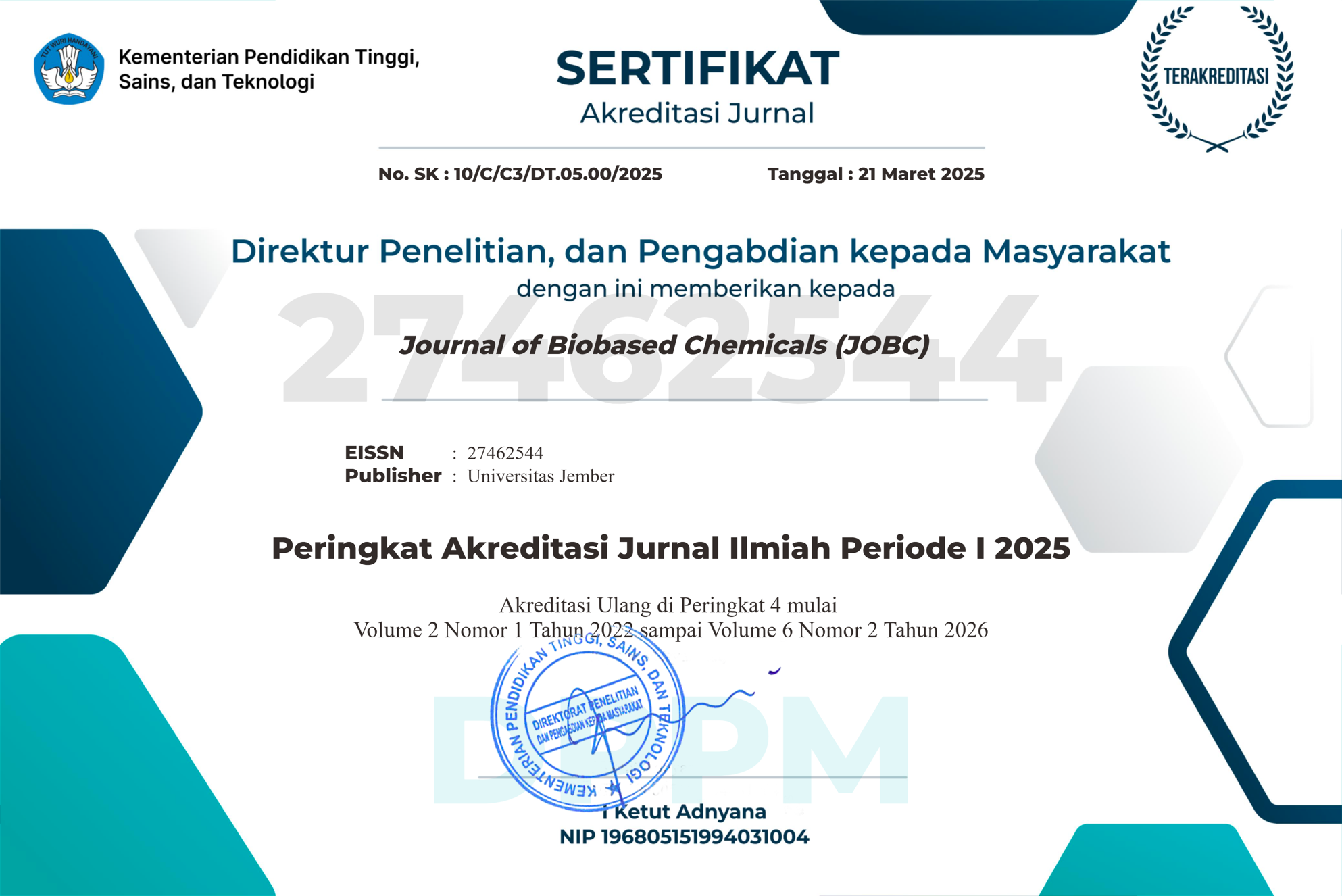Optimization Transesterification Reaction in the Synthesis of Biodiesel from Household Catering Waste Cooking Oil
Transesterification
DOI:
https://doi.org/10.19184/jobc.v4i1.813Keywords:
Used cooking oil, Biodiesel, Transesterification, Optimization, ANOVAAbstract
Biodiesel is an alternative energy source for diesel engines or diesel fuel which is carried out using the transesterification method. Used cooking oil is reacted with methanol which will produce methyl ester and glycerol with the help of a base catalyst in the form of NaOH. The aim of this research is to optimize the biodiesel obtained. The synthesis reaction for biodiesel was carried out at temperatures of 55°C, 60°C, 65°C and with varying times of 60, 90, and 120 minutes, with a volume ratio of used cooking oil-methanol, namely 1:4, 1:5, and 1; 6. The highest yield was 61.9404% and ANOVA (Analysis of Variance) was proven to be significant and fulfilled as in the Design Expert 13 Software.








